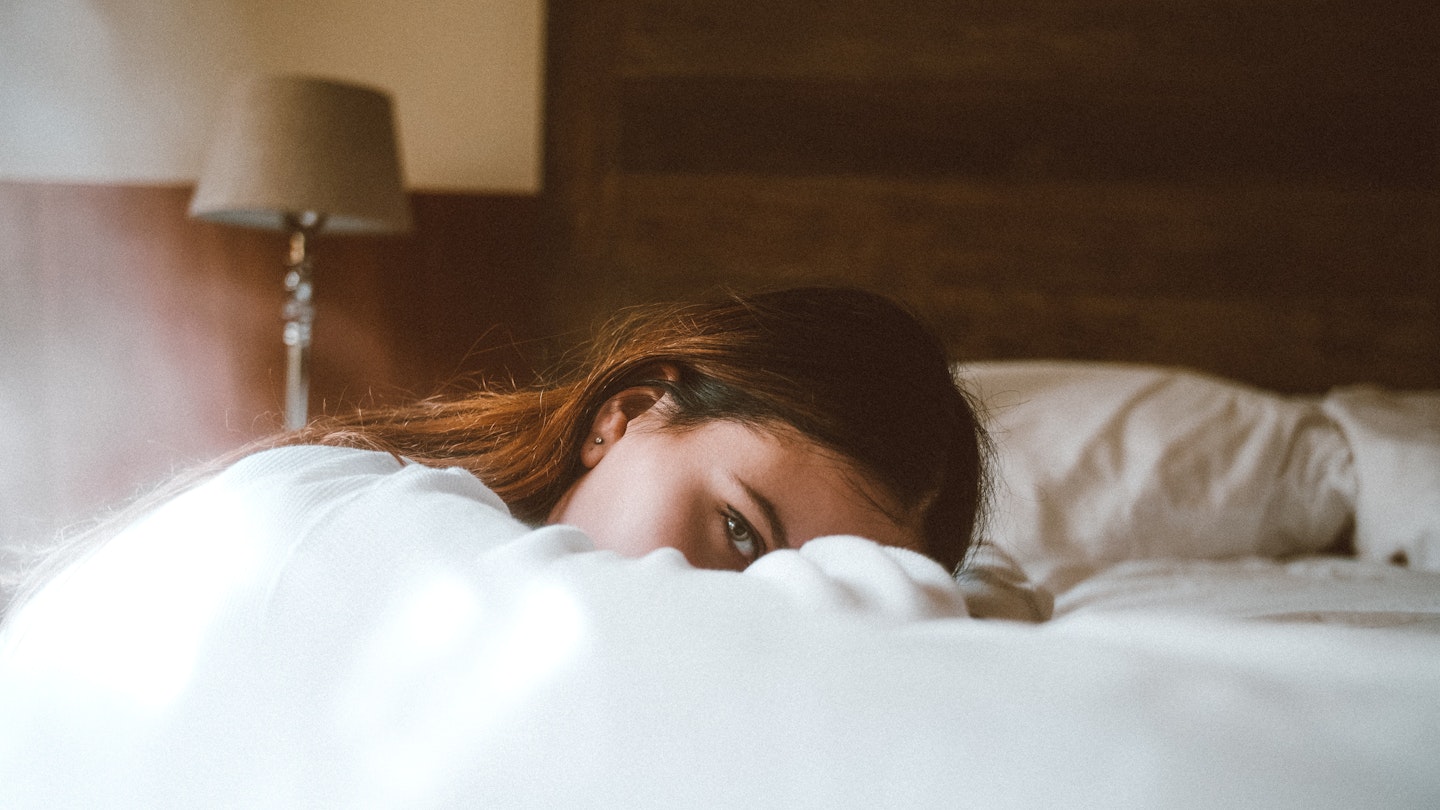Getting a good night's sleep is easier said than done. Even if you're one of the lucky ones who usually nods off within minute of your head hitting the pillow, it's likely that worrying headlines, changes in routine and general angst has made for a few moments of interrupted sleep, and the sort of vivid dreams that you're not generally used to.
For Silentnight's resident sleep expert Dr Nerina Ramlakhan, this comes as no surprise. According to Dr Ramlakhan, such anxiety manifests itself in 'difficulty getting to sleep, difficulty staying a sleep (people will normally wake between 2-4am), poor sleep quality, oversleeping especially during the day and in the morning, nightmares and night terrors and even tooth grinding.' Sound familiar?
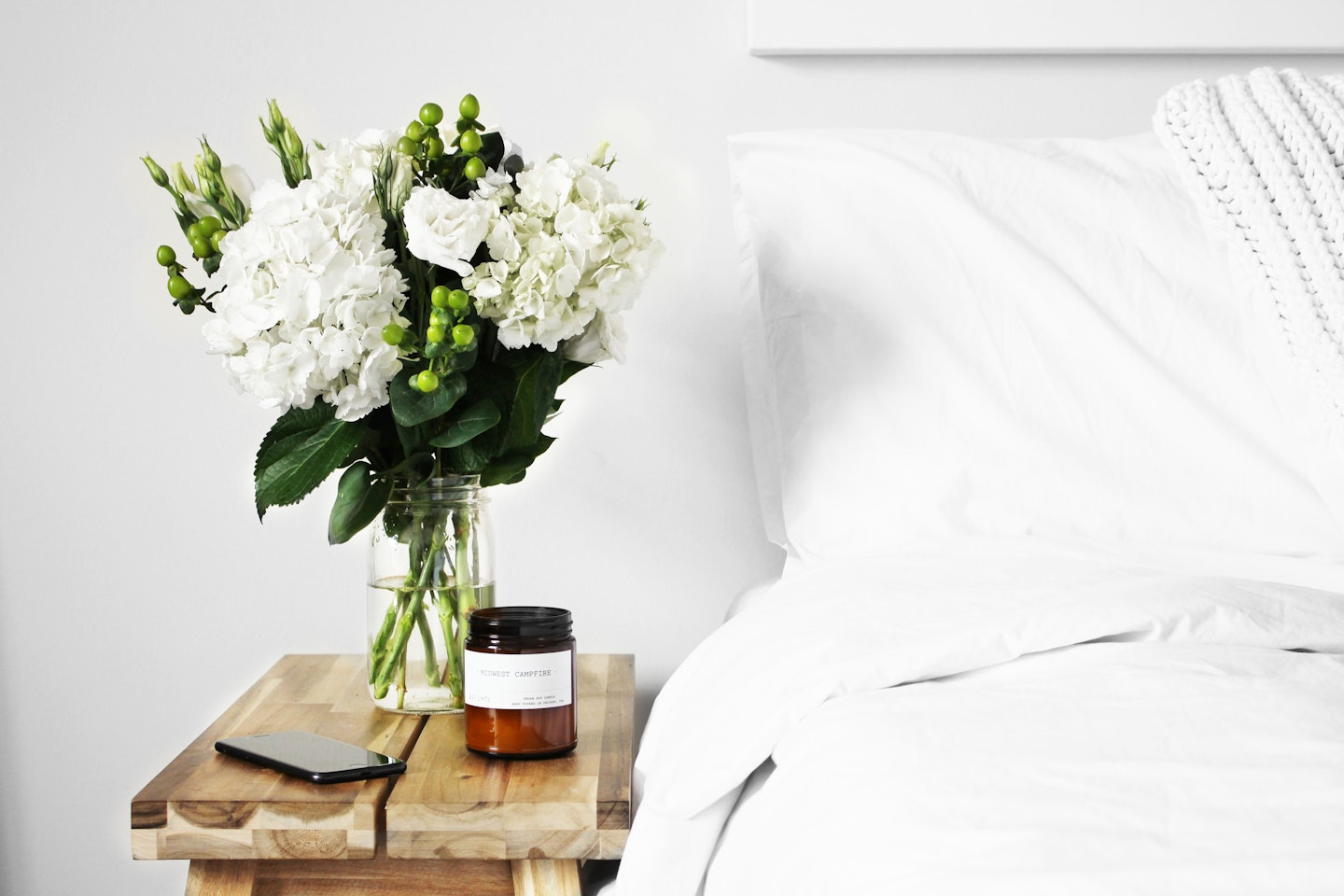
How To Get A Better Night's Sleep
'There is a difference between triggered sleep issues and perpetuating factors', explains Stephanie Romiszewski, Consultant Physiologist and founder of the Sleepyhead Clinic. 'Triggers can be stress, anxiety, and everyday problems that we might be struggling to deal with. It could even be physical changes like the menopause, new medication, or illness. But, There is a lot of scaremongering that if you don’t get six hours of sleep something terrible is going to happen to you, and actually, it’s not that reactive.'
If something is already on your mind, it can add to your stress levels to be concerned about your sleep habits too. 'What we tend to do is worry about the narrative, and then change our behaviour in the best way we logically can. For example, if we know we have an early start we go to bed earlier, or lie in to recover missed sleep, but this moves us further away from our normal sleep routine, and that change is the problem and can lead to a chronic sleep issue. Our brain is being told that our sleep-wake cycle is not the same, and so makes changes to accomodate.'
So what can we do? Dr Ramlakhan has the answers. 'If we adjust positively to the circumstances we now find ourselves in, we will feel so much more resilient and able to deal with the current situation. This means following a healthy daily and pre-bed routine such as getting exercise during the day, eating healthily, having withdrawn from electronic devices earlier, disconnected from news earlier, earlier meals, watching uplifting films with family, reading an uplifting book, keeping a gratitude journal and then going to bed around 10 -10.30pm.'
'The key here is to value yourself enough to do whatever it takes to navigate these anxious times in a steady and healthy way. Make a pact with yourself. Write it down. Tell friends and family you're going to do this and set yourself a target of doing this for 21 days to build a habit.'
SHOP: The Best Buys For A Sound Night's Sleep
SHOP: The Best Buys For A Sound Night's Sleep
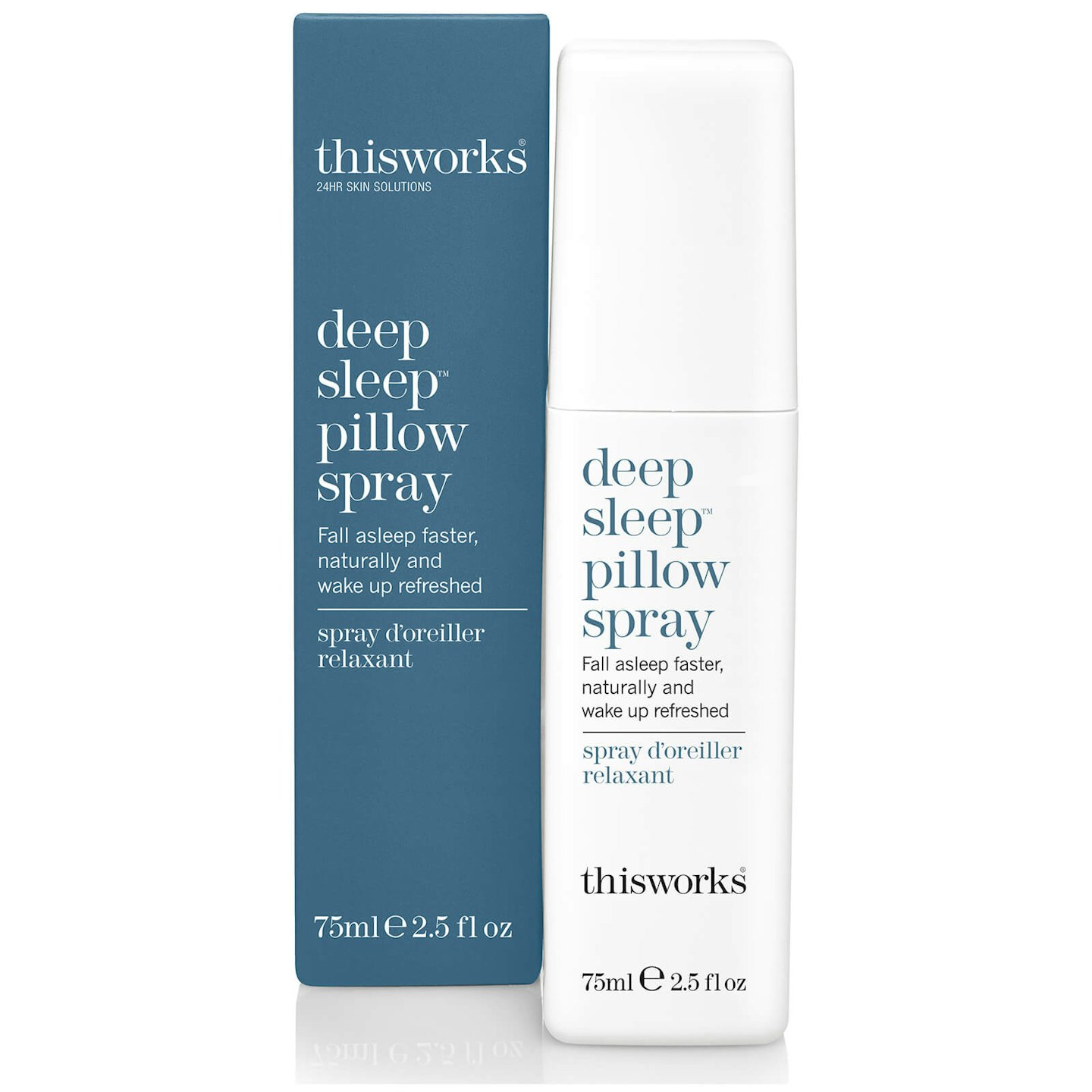 1 of 6
1 of 6this works, deep sleep pillow spray, £19.50
 2 of 6
2 of 6PSYCHIC SISTERS, Protection mist, £19.95
 3 of 6
3 of 6Scientia, Dusk Elixir Face Oil, £32
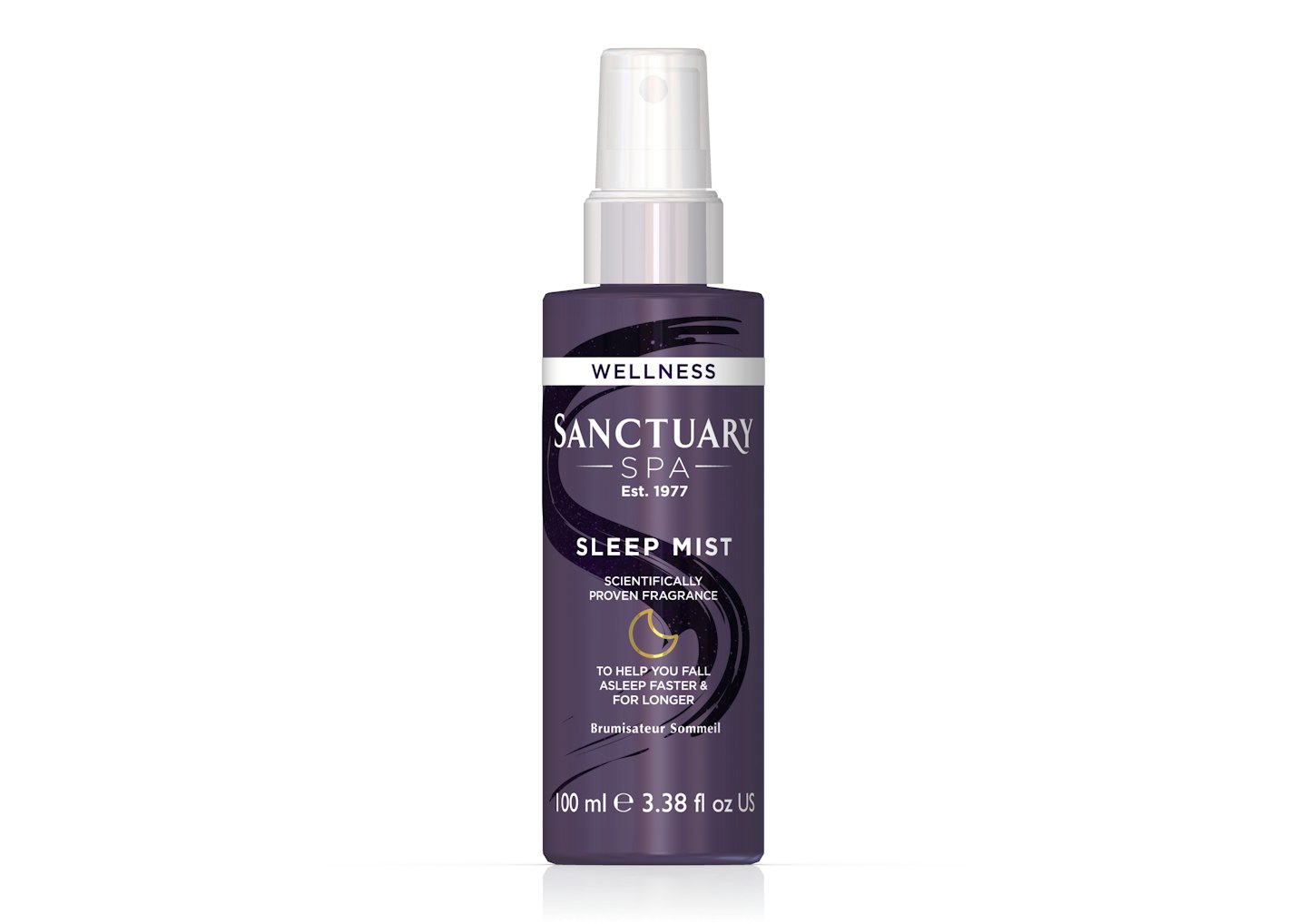 4 of 6
4 of 6Sanctuary Spa, Sleep Mist, £12
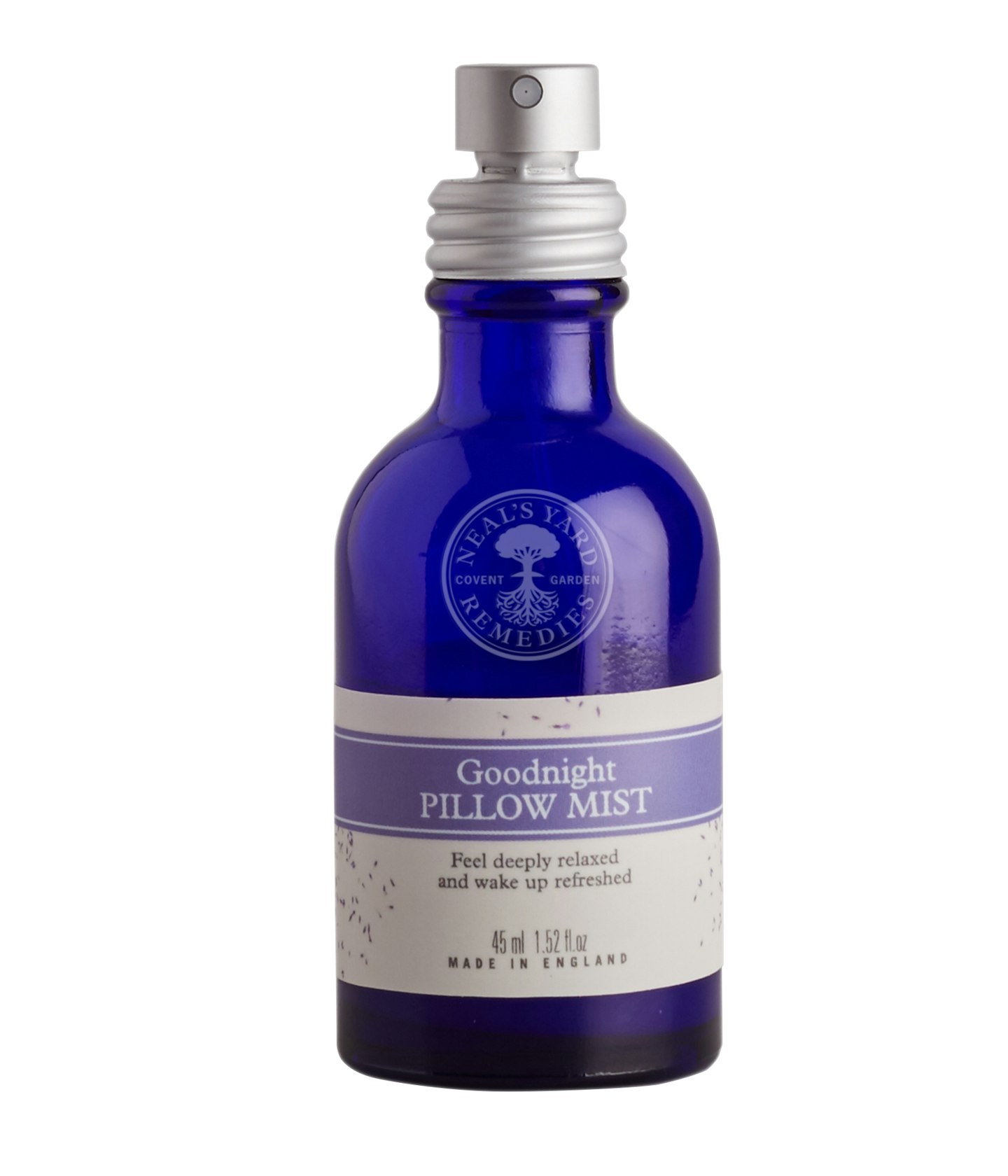 5 of 6
5 of 6Neal's Yard Remedies, Goodnight Pillow Mist, £15
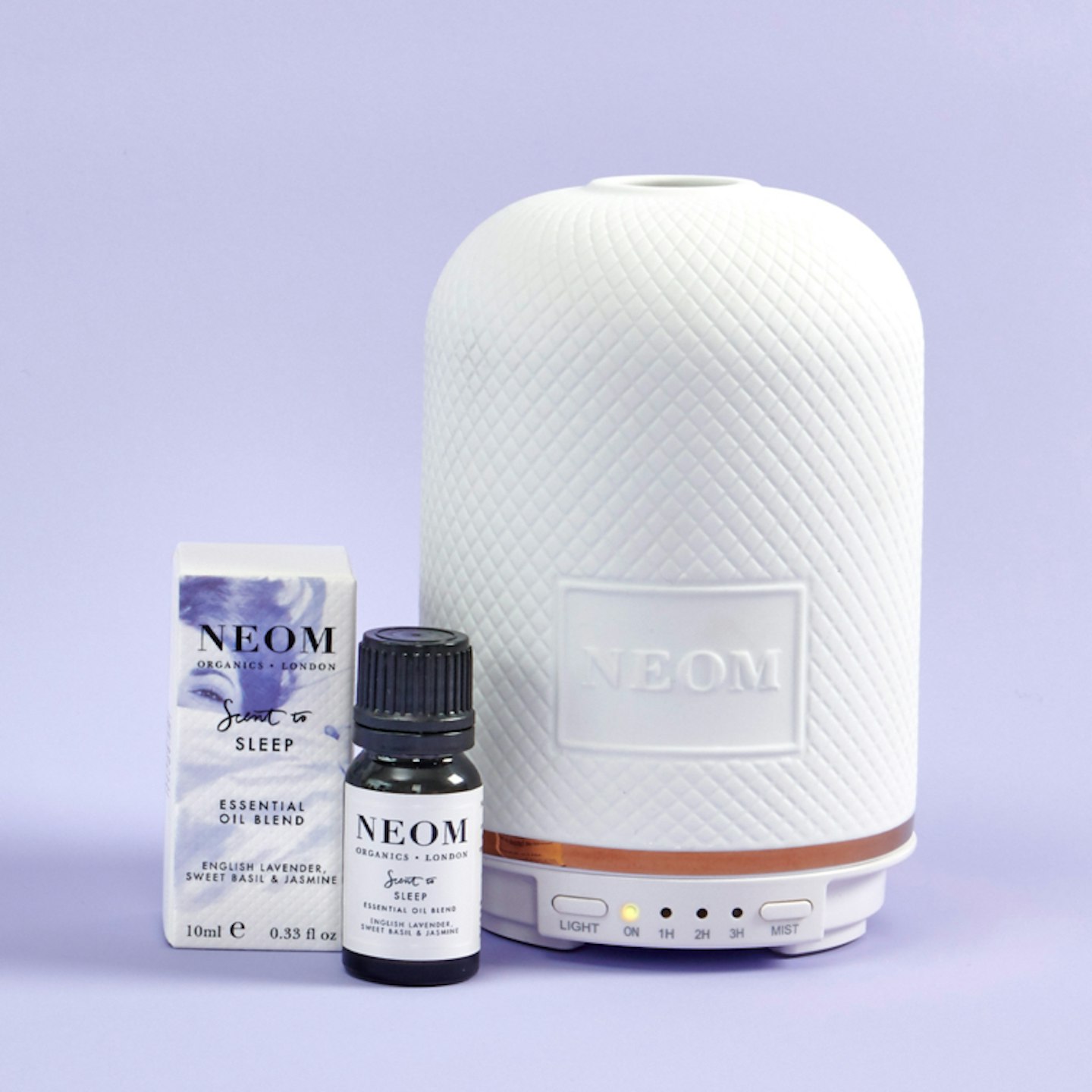 6 of 6
6 of 6NEOM, Perfect Night's Sleep Pod Starter Pack, £100
Diet And Lifestyle Tips For A Better Night's Sleep
Kim Plaza, a Technical Advisor at Bio-Kult, shares a few ways to support a good night’s sleep when it comes to diet and lifestyle.
Daytime Routine
Keeping to a regular routine during the day where possible may help us regulate our sleep hormones more effectively. This includes waking up within the same 90 minute window each day. Our sleep hormones rely on a finely balanced circadian rhythm, which is an internal process that regulates our sleep-wake cycle and is dictated largely by our exposure to daylight. The more our wake-up times fluctuate, the more our hormones will need to adjust, to catch up with us. For example, the stress hormone cortisol naturally increases in the morning to help wake us up but if we have too much circulating in our blood later in the day, it may be harder for the sleep hormone melatonin to have an effect. Having a routine keeps us calm, and may prevent spikes in stress hormones and promote well-being.
Eating Plan
Eating meals at similar times each day ensures that we are also stabilising appetite hormones, such as ghrelin (the hunger hormone) and leptin (the satiety hormone), which can also impact our sleep. Additionally, sleep restriction is associated with decreasing levels of leptin and an increase in circulating levels of ghrelin, potentially leading to over-eating. Reducing our sleep may also stimulate regions of the brain that are sensitive to food stimuli, therefore we may be more likely to experience food cravings. So try sticking to a regular eating pattern of 3 main meals, rather than grazing throughout the day. It will allow our bodies a chance to control blood sugar and keep energy levels balanced.
Physical Activity
When we exercise, we release endorphins (chemicals which trigger positive feelings in the body and brain). Stress hormones such as cortisol on the other hand, hinder the effects of calming hormones, such as melatonin, which is required for relaxation and sleep. The activities that we do during the day will therefore impact on our ability to switch off, so getting a good dose of those exercise derived endorphins could tip the balance in favour of promoting good sleep. There are many forms of exercise, for example gardening or cleaning, alongside more traditional activities such as weight training, yoga and aerobics, which may help to maintain a healthy lifestyle and regulate stress hormones.
Bedtime Routine
As mentioned, our circadian rhythm regulates our sleep-wake cycle, so our bedtime routine is as important as our daytime routine. Creating the correct environment during bedtime is important, as it helps prepare our bodies for rest. Potentially, we could be disrupting our body’s natural circadian rhythm on a regular basis with the use of artificial lighting and looking at computer or television screens late into the night. Make sure your room is dark, at a comfortable temperature and without distractions; this will lay the foundation for a restful sleep. When our bodies are regulated; sleeping patterns, digestive function (including hunger, satiety and bowel movements) and energy levels should become more synchronised with the 24 hour light/dark cycle.
Stress Reduction
Stress and sleep interacts in a bidirectional way, in other words they affect each other. The hypothalamic-pituitary-adrenal (HPA) axis is concerned with our reaction to stressful situations. For example, when we perceive stress, our HPA axis revs up and provides us with hormones that are needed to deal with the situation (like cortisol). The HPA axis modulates our sleep by following the 24 hour light/dark cycle, and provides us with cortisol in the morning and melatonin at night. Loss of sleep puts the HPA axis in a state of over stimulation and tries to compensate our tiredness with stress hormones – to wake us up! Reduce stress where possible, whether it’s practising mindful meditation, listening to music or breathing exercises. These activities may put our bodies in a state of rest, known more specifically as the parasympathetic nervous system. It brings our heart rate and blood pressure down and it might allow us to feel more in control and able to more easily cope in stressful situations.
READ MORE: Joe Wicks' Tips On Getting The Most From Online Workouts
READ MORE: The Best At-Home Yoga Videos You Can Follow For Free
